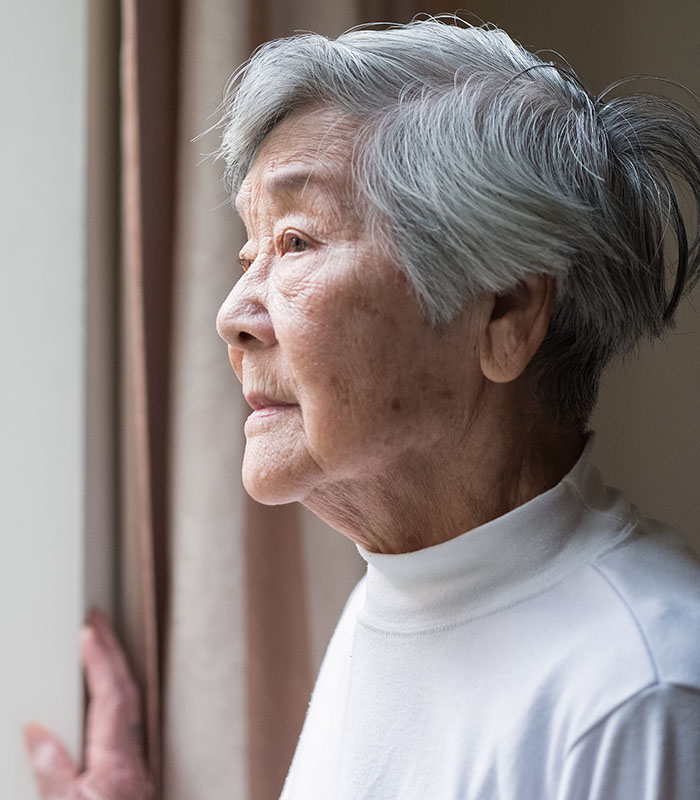Overland Park Nursing Home Abuse Attorneys
Overland Park Nursing Home Abuse Attorneys
Providing Personalized & Compassionate Legal Representation
At the Law Office of Tom Wagstaff Jr., we have dedicated the majority of our legal practice to protecting the rights of the elderly and other vulnerable individuals. Our Overland Park nursing home abuse attorneys provide highly personalized and compassionate legal representation to those who have suffered devastating physical, emotional, and financial losses due to mistreatment and wrongful conduct by trusted caregivers. With over 25 years of legal experience, our team is ready to fight for you.

What Constitutes Nursing Home Abuse?
While many people think of physical assault when they think of nursing home abuse, this is far from the only type of conduct that constitutes nursing home abuse. In fact, nursing home abuse includes all forms of mistreatment and substandard care by nursing homes, long-term care facilities, assisted living facilities, and even private, in-home caregivers.
Types of Nursing Home Abuse
There are five main types of nursing home abuse. These include:
- Physical Abuse: Physical abuse in nursing homes includes slapping, hitting, pushing, shoving, pinching, grabbing, and other violent physical acts.
- Emotional Abuse: Emotional abuse, also known as mental or psychological abuse, includes threatening, degrading, yelling, isolating, and harassing.
- Sexual Abuse: Any unwanted or nonconsensual sexual conduct, including instances in which an individual cannot grant consent, is considered sexual abuse.
- Financial Abuse: Financial abuse, or exploitation, includes attempts to steal, misuse, or misappropriate money or personal property.
- Neglect: Neglect involves the willful or unintentional failure to provide for nursing home residents’ basic needs, including providing adequate food, shelter, medical services, etc.
Why Does Nursing Home Abuse Occur?
Nursing home abuse can result from a combination of various factors, and understanding these contributors is crucial to preventing and addressing such issues. Some key factors that contribute to nursing home abuse include:
Inadequate staffing levels and high turnover rates can lead to overworked caregivers, increasing stress and decreasing the quality of care provided. This can create an environment where neglect and abuse are more likely to occur.
Insufficient training or inadequate education for staff members in recognizing and managing resident needs, especially in dealing with challenging behaviors or medical conditions, can contribute to instances of neglect or improper care.
Ineffective management, lack of supervision, or failure to enforce policies and procedures within the nursing home can create an environment where abuse can go unnoticed or unaddressed.
Continuous exposure to high-stress situations, demanding workloads, and emotionally challenging interactions with residents can lead to burnout among caregivers. Burnout may result in decreased empathy, frustration, and a higher likelihood of abusive behavior.
Residents who lack regular visits from family or friends may be more vulnerable to abuse due to reduced oversight. Similarly, isolation within the facility can make it easier for abusive behavior to go unnoticed.
Negative workplace culture, tolerance of abusive behavior, or a lack of accountability within the nursing home can foster an environment where mistreatment is more likely to occur.
In some cases, personal issues such as substance abuse, mental health problems, or a history of violent behavior among staff members can contribute to instances of abuse.
Who Is Liable for Nursing Home Abuse?
Liability for nursing home abuse can extend to various parties involved in the care of residents. Determining liability in nursing home abuse cases can be complex and may involve multiple parties. Legal actions often investigate the specific circumstances and evidence to determine who should be held accountable for the harm caused to the residents. Here’s a breakdown of potential liable parties:
The facility itself can be held accountable for the actions of its employees under the legal doctrine of "vicarious liability" or "respondeat superior." If an employee commits abuse or neglect while carrying out their duties, the facility may bear responsibility.
Employees directly involved in the abuse or neglect, such as nurses, aides, or other staff members, can be held personally liable for their actions. This encompasses physical abuse, neglect, emotional mistreatment, or financial exploitation of residents.
Administrators, directors, or supervisors who are aware of abuse or neglect but fail to take appropriate action to stop it or prevent recurrence may also be held liable.
If the nursing home contracts certain services like maintenance, security, or medical care, and these third-party entities contribute to or cause harm to residents, they could be held liable.
If the abuse involves medical malpractice or negligence by healthcare professionals like doctors or therapists, they might face liability, especially if their actions cause harm to residents.
If abuse or injury stems from faulty medical equipment or products within the nursing home, the manufacturer or distributor of those items might be held liable.

How to Tell When Nursing Home Abuse Is Occurring
It is not always immediately obvious when nursing home residents are being abused. It is important that family members and loved ones keep an eye out for the signs that abuse or neglect are occurring so that they can take immediate action to protect elderly residents’ safety. One way to determine if a nursing home provides adequate care for its residents is to look at the facility itself. The following signs could indicate neglect generally unclean, unsanitary, or unsafe environment, residents that are kept primarily in their rooms, lack of opportunities for residents to socialize or see visitors, a small number of staff members compared to residents, visible hazards, such as dangerous steps or stairs, that could pose a risk to residents, residents that appear unhappy, unclean, agitated, depressed, or isolated, and staff that refuses to answer questions or provide information for reasonable requests, Negative reviews from residents or their families, as well as official complaints. It’s wise to obtain a general idea of what a facility is like and how it operates before placing a loved one in its care. However, even the cleanest and safest-seeming home could be the site of nursing home abuse or neglect.
Additional Signs
It’s important to keep an eye out for additional signs that could indicate nursing home abuse, including but not limited to unexplained injuries, such as bruises or cuts, fall-related injuries, such as broken bones, bedsores, or pressure ulcers, untreated illnesses or infections, lack of medical care, medication errors, signs of physical or chemical restraint, changes in mood or behavior, unusual mood swings or sudden bouts of crying, increased aggression or irritability, depression, anxiety, or post-traumatic stress disorder, new sexually transmitted infections (STIs), injuries to the groin, genitals, buttocks, or female breasts, unusual withdrawals from bank accounts, bounced checks, overdraft fees, and unpaid bills, changes to a will, trust, or power of attorney, or unexplained death.
If you have any reason to suspect your loved one may be the victim of nursing home abuse or neglect, take immediate action. Call 911 if you believe anyone is in imminent danger; then, alert the proper authorities. This may include local law enforcement, the facility’s administration, or the appropriate state agency in your area. You should also consider reaching out to an experienced nursing home abuse attorney, like those at the Law Office of Tom Wagstaff Jr. You could be entitled to financial compensation for your damages—such as medical expenses, financial losses, pain and suffering, emotional distress, and more—and an attorney can help you prepare your case. We are committed to not only maximizing your recovery but also ensuring that you and your family receive the justice you deserve.
Reach Out to Our Firm Today for a Free Consultation
Our Overland Park nursing home abuse lawyers are here to answer your questions and provide additional information specific to your case at no cost and with no obligation to you. We provide completely free consultations and do not collect any legal fees unless we successfully recover a settlement or verdict on your behalf.
At the Law Office of Tom Wagstaff Jr., we truly care about protecting our society’s most vulnerable individuals. We intentionally limit our caseload in order to better provide personal attention and one-on-one legal support to every client. We work as a team, pooling resources and experience to develop innovative legal strategies tailored to each unique case. If you or your loved one has been the victim of nursing home abuse in Overland Park or anywhere in Johnson County, KS, contact our firm at 816-708-0524 for a free, confidential consultation.
